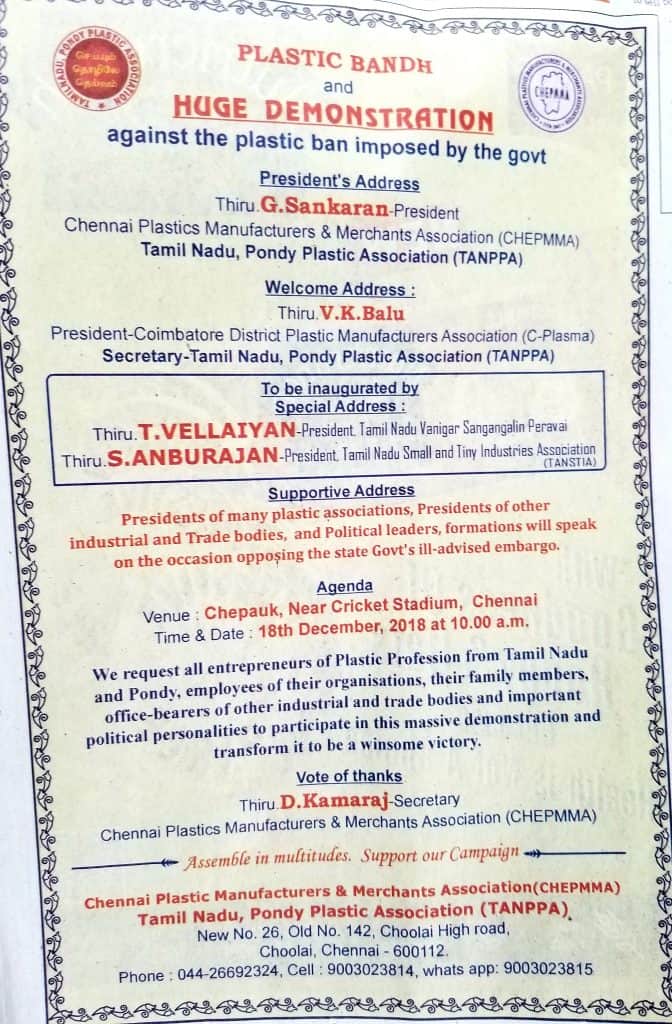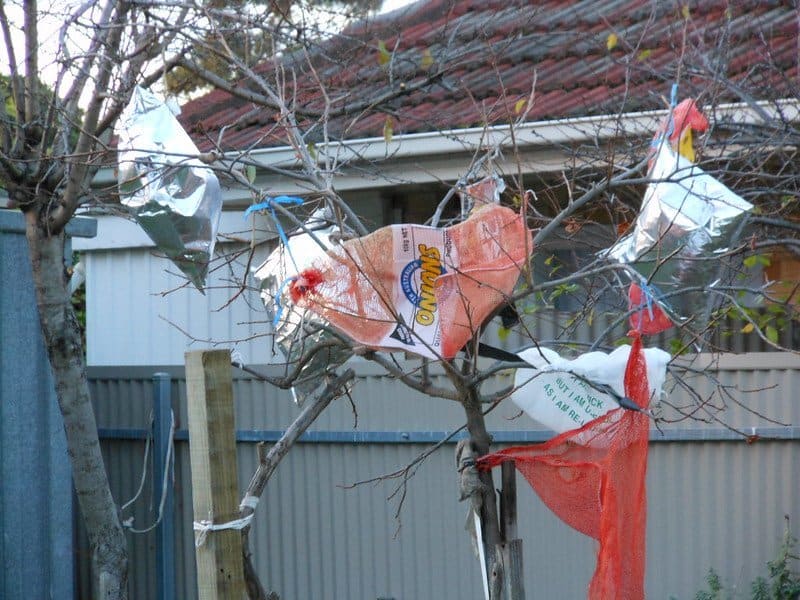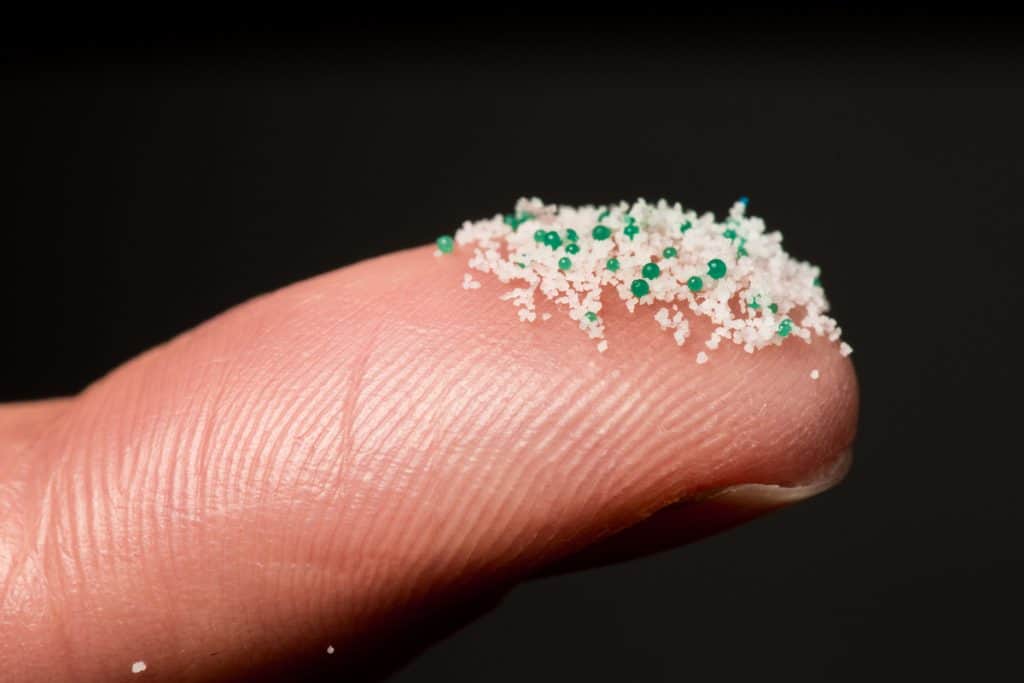One hundred twenty-seven countries have introduced regulations like bans and fees to cut down on single-use plastic bags… the kind every deli and bodega still hand out here in New York where I live. This is great news. Plastic bags aren’t just an eyesore — they cause major environmental damage. Thankfully, there is evidence that these bans and fees have begun to have an effect.
One of the most ambitious of these initiatives had been in India, which vowed just last year to eliminate single-use bags entirely by 2022. But in October, officials called off the bag ban, apparently caving to industry pressure. Workers who believed their jobs were threatened by the ban also pushed back. I saw this sign when I was in India this past December:

There’s no debating that India desperately needs to ban plastic bags, and its sudden reversal shows how political and economic pressures can derail even much-needed efforts. Here is the beach near Mumbai… catastrophic.
All our trash washed up on Juhu beach @DisasterMgmtBMC, been this way for the last 5 days. Bobcats required for #CleanUp. @MCGMswm @AUThackeray pic.twitter.com/3uj27pUDwR
— Dia Mirza (@deespeak) June 23, 2019
Do the plastic profession workers actually have a point? Couldn’t the plastic containers and bags be replaced by other packaging — paper or reusable bags — and jobs be created in the process?
This is not merely a cosmetic problem. Plastic bags are doing serious harm to all kinds of life on the planet. Even domestic animals like cows die from ingesting these things. In Kenya and other places, where cows are a measure of one’s wealth, there is a huge incentive to prevent your life’s savings from vanishing due to a plastic bag. Plastic bags also clog drains, which causes flooding, and the damage they’re inflicting on ocean life is disrupting the whole food chain.

Marine biologist Sylvia Earle (who has walked untethered on the ocean floor at a depth no one else has ever matched) has written extensively about the intertwined fates of humans and the ocean: “Even if you never have the chance to see or touch the ocean, the ocean touches you with every breath you take, every drop of water you drink, every bite you consume. Everyone, everywhere is inextricably connected to and utterly dependent upon the existence of the sea.”
Many kinds of plastic eventually break down and flow into the soil and the oceans as microplastics — tiny shards of plastic less than five millimeters big. Fish eat these particles, and we eat the fish, which means that just like the cows and the turtles, our bodies are filled with plastic bits.

Malene Møhl of the Danish Ecocouncil says:
“Microplastics are more jagged and porous than large pieces of plastic, making them like little sponges that soak up toxins from the seas. When animals mistake microplastic for food—like fish eggs or plankton—they also ingest the chemicals the plastic contains. If the plastic doesn’t stop up their digestive systems and cause starvation, the chemicals in the plastic kill them slowly over time.”
These microplastics affect the whole of ocean life, from the organisms lowest on the food chain all the way to the ones at the top. According to the Guardian, mussels are coming unstuck because of microplastics:
When blue mussels were exposed to doses of non-biodegradable microplastics over 52 days, they lost about half their power to stick to surfaces…If mussels are losing their grip in the wild…the effects will be felt beyond the mollusc population. Mussels cling together and form reefs, which help them to breed, and shelter myriad other marine animals and plants, playing an important role in the marine ecosystem.
At this point, at the scale humans are using and discarding plastic, it is no longer the “cheap” option. From a report produced by the World Economic Forum:
The Ellen MacArthur Foundation estimates the costs arising from single-use plastics, together with those of the greenhouse gases emitted during production, to be $40 billion. This staggering figure exceeds the current plastic industry’s profit pool and further strengthens the arguments for why current plastic production and consumption must be curbed. It simply no longer makes financial, social or environmental sense.
Single-use plastic bags are not essential to us. They cost us money and are detrimental to our way of life, so it’s time to get rid of them.
Who is getting rid of plastic bags?
Countries like England, Scotland, Wales and Italy are trying a bag tax rather than a complete ban. Shoppers who ask for a bag in those countries pay extra. This strategy has been proven elsewhere, including in a growing number of U.S. cities and states.
From One Green Planet:
Research has shown that whenever such a levy was introduced in other countries, plastic bag usage tends to decrease quickly. When Ireland introduced a 20 cent levy on plastic bags in 2002, usage of the bags declined by 90 percent (that’s about one million fewer plastic bags), with customers now more inclined to bring reusable bags with them to the store.
A few of the many countries banning or taxing plastic bags:
Eritrea banned plastic bags in its capital back in 2002, and followed up with a nationwide ban three years later. The result has been a dramatic decrease in use—most Eritreans today use nylon, cloth or straw bags—and a subsequent drop in drain blockage. Keeping drains clear helps prevent health hazards from excess sewage and wastewater, which pools to create breeding grounds for bacteria. (Yuck.)
Before Morocco banned plastic bags in 2016, Moroccans used more plastic bags than any other country besides the United States. Since the ban took effect, however, the consumption of raw materials used in the manufacture of plastic bags in Morocco has fallen by half. Authorities seized 421 tons of plastic bags in the ban’s first year, proving they’re serious about enforcement.
China began restricting plastic bags in 2008. A decade later, enforcement and scale issues remain. Though a survey conducted in the ban’s first year found a 60 to 80 percent decrease in their use in supermarkets, more recent studies have found that up to 78 percent of Chinese retailers don’t fully comply with the restrictions.
This country has one of the world’s newest plastic bag bans—in August 2018, Kiwis were told they would be phased out, and the ban officially took effect on July 1, 2019.
Kenya is home to the toughest penalties of all. Cattle are currency for some farmers in Kenya, so seeing your cows die after eating plastic bags is like watching your nest egg vanish. As of August 2017, Kenya has enforced a total ban, with fines and a four-year jail term (!) for making or importing plastic bags. Wow.
Given the ubiquity of single-use plastic bags, banning them is a major effort, but it seems the momentum is there and even growing. In our lifetimes, we may even see these bags eliminated from the Earth. This is as much about changing social norms — what constitutes acceptable behavior and practices — as it is about a harmful product. As more bans take hold and the word gets out it will soon be socially unacceptable to be seen using or giving out single-use plastic bags. As with other habits that have become unacceptable, they will eventually vanish and become a memory.









